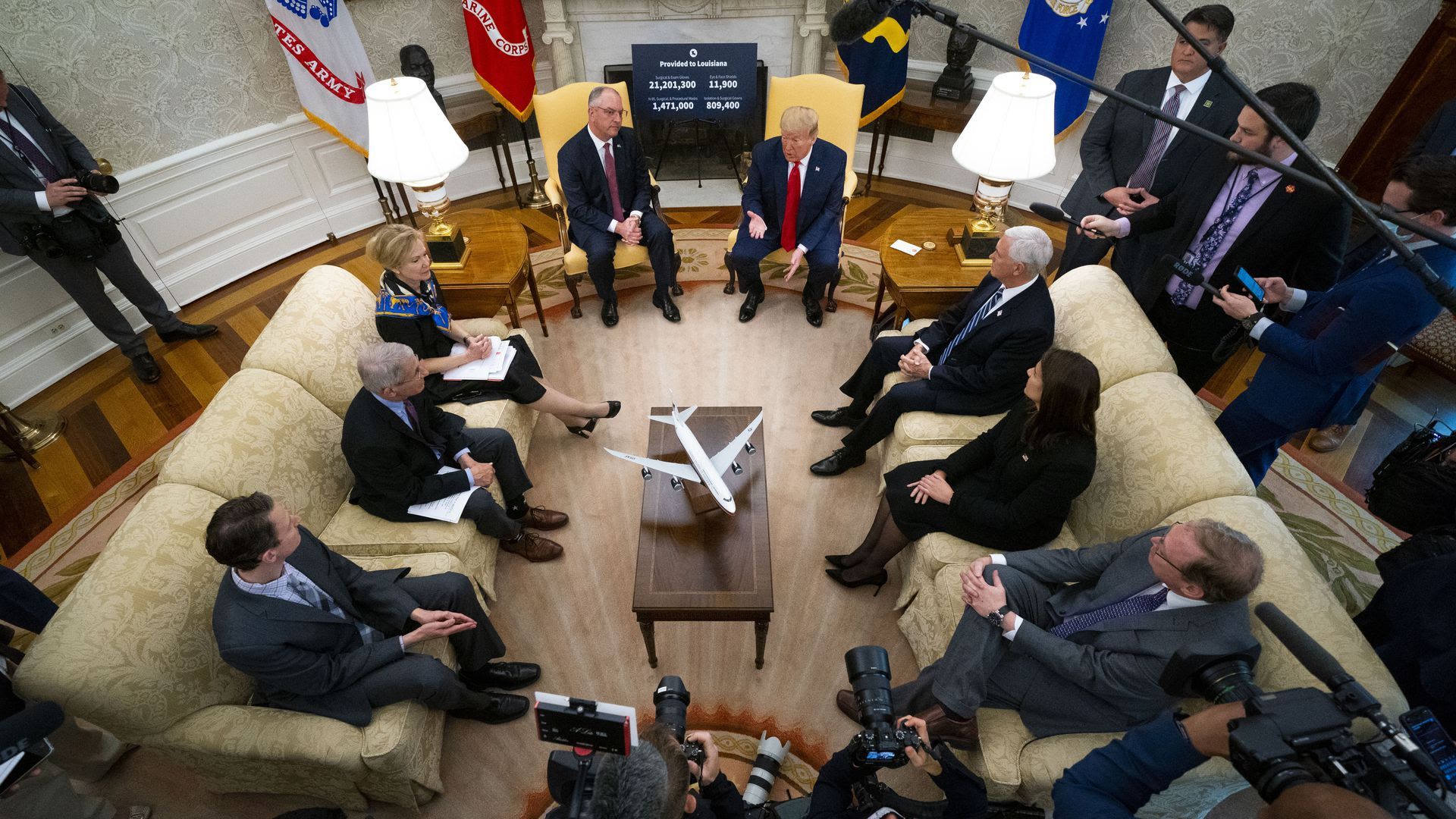Trump may spend billions to speed vaccine moonshot
Add Axios as your preferred source to
see more of our stories on Google.

Photo: Doug Mills/The New York Times/Pool/Getty Images
Trump administration advisers are hinting at a willingness to spend billions and elevate their risk tolerance in the hope of getting coronavirus treatments out this year.
What they're saying: "There had been frustration about how slow CDC was moving on a vaccine, and there had been discussions on how to bypass some of the bureaucracy and speed the process up significantly," a White House official told Axios' Alayna Treene.
The plan: The administration wants to organize public-private partnerships — with taxpayers assuming the risk — to produce vaccines on scale before widespread trials have ended.
- "Called 'Operation Warp Speed,' the program will pull together private pharmaceutical companies, government agencies and the military to try to cut the development time for a vaccine by as much as eight months," Bloomberg reports.
- Reality check: This is billed as a way to get 100 million doses to the public by the end of this year and shorten the 12- to 18-month timeline laid out by the NIH's Anthony Fauci, but even that window was extremely optimistic.
The higher risk tolerance: The administration is reportedly preparing to give an emergency use authorization for Gilead's remdesivir, despite mixed results in early trials, the N.Y. Times reports.
- Remdesivir appears to help people recover modestly quicker, which could be encouraging for those who get sick, but this drug is not any kind of a "cure" for this novel coronavirus, Axios' Bob Herman reports. Faster means 11 days vs. 15.
- The data, which is still undergoing peer review and wasn't expected until May, shows an "important proof of concept" for remdesivir, but it isn't necessarily a "knockout," the NIH's Anthony Fauci said at the White House today.
- Flashback: President Trump was promoting chloroquine and hydroxychloroquine as recently as two weeks ago.
The bottom line: There's a lot of pressure to get treatments and eventually a vaccine out to the public faster — but don't get your hopes up.
